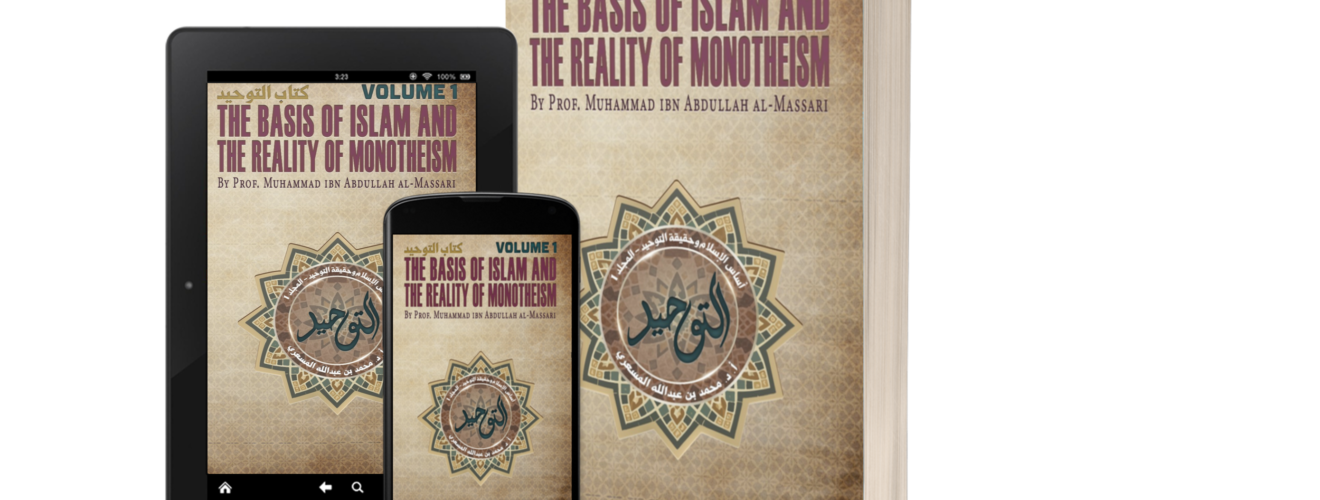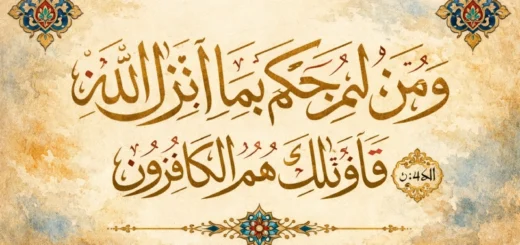Kitab al-Tawheed: The Basis of Islam and the Reality of Monotheism

Getting your Trinity Audio player ready...
|
Kitāb al-Tawḥeed: The Basis of Islam and the Reality of Monotheism, is truly a landmark work, occupying a unique place amongst a contemporary landscape often bereft of original insightful scholarly work. The series represents an in-depth study into the very root origins of Islam, the essential nature of Tawḥeed (monotheism). Coupled with that, it tackles head on not only the age-old problem concerning the precise nature of Shirk (polytheism) and worship, but how these topics invariably correspond to contemporary issues like ruling, governance and allegiance. Liberated from the confused ill-disciplined divisions and historical blunders, primacy is given to the original textual sources, challenging many of the phantasms that have plagued Islamic thought for far too long.
Volume 1 of the Series
Volume 1 of the series comprises topics relating to the foundations of Islam and its fundamental doctrinal principles. For the second revised edition of this volume, we have streamlined many chapters, particularly where referencing and citation was copious. Although not part of the original Arabic text, we have included accompanying footnotes, together with additional clarification where appropriate, which includes providing hardcopy referencing to many original sources in Arabic. Chapter headings have been streamlined for the present translation. As with other translated texts that we have produced, utilisation has been made of a single, standardised translation of the Qur’ān, that produced by Professor M Abdel Haleem. This is done largely for the sake of consistency, but also for accessibility and readability. Where we have departed from that, the rationale is provided in the footnotes.
Some additional explanation has on occasion been written into the body-text to provide greater exemplification for the English reader. That has been done under the direct supervision and approval of the author. All aḥādith are translated in full including the chains of transmission. On occasion the Arabic text has been omitted altogether where it is of considerable length, similar has been done with other large quotations, including material from exegesis and Qur’ānic verses.
وَإِلَهُكُمْ إِلَهٌ وَاحِدٌ لا إِلَهَ إِلا هُوَ الرَّحْمَنُ الرَّحِيمُ
Your God is the one God – there is no god except Him, the Lord of Mercy, the Giver of Mercy [Qur’ān, 2: 163]
There is no multiplicity of ‘gods,’ nor any pantheon, there is only Allah. He, the Exalted and Majestic, has no partner, no consort and no offspring whatsoever – whether that be falsely attributed to Him by the people of the book, who say that ‘Jesus is the son of God,’ or the pre-Islamic Arabs who said that ‘the angels were the daughters of Allah.’ He, the Exalted and Majestic and only He has the ultimate prerogative of command. We ask Allah for His help, support and guidance and to forgive our many mistakes and shortcomings. Perhaps this small effort presented here will benefit you as well as us, both in this present temporal plain, and the in the life to come, Ameen Ya Rab.
Second edition and Open Access
The revised second edition of Volume 1 from the series has now been published. We have also produced a new Kindle version which is also now available.
An open access version of Volume 1 is now available for download here:
However, we would strongly encourage our readers to purchase a copy of the physical book.
About the Author
Born in Mecca (Friday 8 November 1946), Professor Muḥammad ibn Abdullah al-Massari, may Allah preserve him, is from the Dawāsir tribe, which is the modern name for the famous tribe of Hamdān. He hails from a distinguished and scholarly family. His father, Shaykh Abdullah ibn Sulaymān ibn ‘Abdur-Raḥman ibn Muḥammad al-Massari, may Allah have mercy upon him (b. 1918 / d. 2005) was a learned scholar and one of the distinguished students of Sheikh Muḥammad ibn Ibrāhim al-Shaykh, may Allah have mercy upon him too. He also held several distinguished posts from early on, from being an assistant judge to Shaykh ‘Abd al-Aziz ibn Abdullah ibn Bāz, to becoming vice President and later President of the Board of Grievances (Diwān al-Mathālim; the Supreme Administrative and Constitutional Court), and a Professor of Islamic studies at Dar al-Tawḥeed, in Ṭā’if His maternal grandfather was the distinguished Shaykh Muḥammad ibn ‘Abdur-Razzāq (d. 1973), the founder of the Dar al-Ḥadith Academy in Mecca and al-Imām al-Ḥaramayn, of Medina and Mecca.
Naturally growing up in this distinguished scholarly environment Professor al-Massari was an outstanding student from a young age, benefiting enormously from study circles with his father and his associates. He has always had an insatiable desire for knowledge, leading him to peruse the rich collection of works from his father’s library, covering both the Islamic sciences, philosophy and literature. A very early example of this, is the study he undertook of Majmu’ al-Fatāwa, which is Ibn Taymiyyah’s acclaimed work consisting of some forty-volumes, following its publication in 1963. That study included a complete critical reading of the text accompanied with detailed comments, observations and criticisms.
In tandem with his studies in various branches of Islamic sciences, Professor al-Massari is also Professor Emeritus of Theoretical and Mathematical Physics. Published widely in the field of solar energy conversion, solid-state devices and QCD (quantum chromodynamics), some of his key achievements have been designing a modern prototype electric car and the calculation of the Top-Quark mass within the framework of the renormalisation group equations. However, it is his Islamic works that have made a quantum leap in contemporary Islamic thought, notable works include:
- The Constitution of Medina
- The Seal of Prophethood
- Prohibition of building Mosques on Graves
- Najd and the Horn of the Devil
- Ḥākimiyyah and the Sovereignty of Sharī’ah
- The Awaited Promised Mahdi
Professor al-Massari lives in exile in London since 1994, where he currently continues his research and writing



